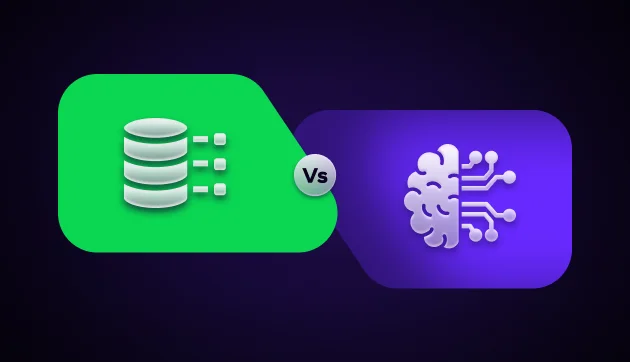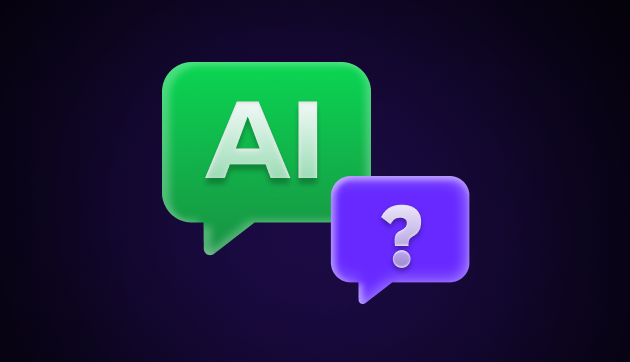
Roles & Responsibilities of Machine Learning Engineers
Mar 17, 2025 5 Min Read 5752 Views
(Last Updated)
I think we can all agree that recently, one of the most exciting areas of technological advancement is Artificial Intelligence (AI), I mean it’s all we hear about these days, and rightfully so because it really does make life a whole lot easier. These cutting-edge technologies are shaping a smarter world by enabling machines to become more intelligent and efficient and all thanks to machine learning engineers.
But can AI do its magic without Machine Learning? Nope! Machine Learning is like Chandler to AI’s Monica… It’s backbone! So it’s no surprise that the demand for professionals with expertise in AI and ML has been skyrocketing recently, with companies across industries recognizing the value in business that these technologies bring.
If you are considering a career as a machine learning engineer, it is crucial to understand the primary responsibilities and roles of a machine learning engineer and we’re here to help you right through it so keep reading on…
Table of contents
- Primary Responsibilities & Roles of a Machine Learning Engineer
- Designing and Developing ML Systems
- Data Analysis and Preprocessing
- Model Deployment and Monitoring
- Collaboration with Cross-Functional Teams
- Continuous Learning and Skill Development
- Your Responsibilities Role-Wise
- Machine Learning Internship
- Entry-Level Machine Learning Professionals
- Senior-Level Machine Learning Professional
- Must-Have Skills for a Machine Learning Engineer
- Technical Skills
- Soft Skills
- Takeaways...
- What is the main role of machine learning?
- What are the key skills of a machine learning engineer?
- What does a machine learning engineer do on a daily basis?
- What are the 3 types of machine learning?
- Does a machine learning engineer require coding?
Primary Responsibilities & Roles of a Machine Learning Engineer

Machine learning engineers are responsible for designing and developing ML systems, which include identifying suitable data representation methods, analyzing data quality, performing statistical analysis, and building suitable machine learning models and applications.
However, the specific duties and responsibilities vary depending on the experience level and the requirements of specific organizations and their business needs. However, we discuss the most essential ones that you must have here:
1. Designing and Developing ML Systems
As stated above, being able to design and develop ML systems is one of the most important responsibilities for ML engineers as those systems can automate various tasks within a company and make life easier.
- This involves understanding the problem at hand, listing out possible solutions, identifying the appropriate machine-learning algorithms, and implementing them to create efficient and accurate models.
- You will be required to perform research, modify data, and apply data science and data analytics prototypes to produce effective models.
- You must also be able to conduct tests and employ test findings to perform statistical analysis and improve existing models.
Before moving forward, make sure you understand the basics of Artificial Intelligence & Machine Learning, including algorithms, data analysis, and model training. If you want to learn more, join GUVI’s AI & Machine Learning Courses with job placement assistance. You’ll discover important tools like TensorFlow, PyTorch, scikit-learn, and others. Plus, you’ll work on real projects to gain practical experience and improve your skills in this fast-growing field.
2. Data Analysis and Preprocessing

Machine learning engineers must perform data analysis tasks to understand the performance of their models and derive insights from the available datasets so that they can draft solutions or updates accordingly.
This includes tasks like data preprocessing, feature engineering, and data visualization to ensure that the data used for training the models is of high quality, is ready, and suitable for the task at hand.
3. Model Deployment and Monitoring
After a machine learning model has been developed, the engineers are responsible for deploying it into production and monitoring its performance to oversee how well it works and what improvements can be made.
This involves integrating the model into existing systems, setting up monitoring mechanisms, and ensuring that the model continues to perform accurately over time.
4. Collaboration with Cross-Functional Teams
As a Machine Learning Engineer, you will also need to collaborate with other teams within the organization, such as data scientists, software engineers, and product teams.
Collaborations are essential for defining project objectives, improving the performance of the models, and ensuring that the machine learning solutions align with the overall business goals of the organization.
5. Continuous Learning and Skill Development

It wouldn’t be an overstatement to say that in the tech world, something new pops up every day! So, to stay at the forefront of the rapidly evolving field of machine learning, it is crucial for you as a machine learning engineer to continuously update your skills and knowledge.
This includes keeping up with the latest updates in machine learning algorithms, tools, and techniques, as well as staying informed about the latest research.
Your Responsibilities Role-Wise
Now as with most careers, with ML as well the specific responsibilities and duties of a machine learning engineer vary based on the experience level required for the job and the requirements of the company. Here we list and discuss the basic ones and their flows:
1. Machine Learning Internship
A machine learning internship is mostly for the recently graduated peeps with a degree in computer science or a related field but you can also apply if you’re making a career switch or just want to start building a career in ML.
Getting back to our topic of discussion, as an ML intern, you will be expected to work closely with other engineers, develop and deploy ML models, perform data analysis tasks, and present your findings to peers and stakeholders. Basically learning and gaining actual industry experience.
2. Entry-Level Machine Learning Professionals
Entry-level machine learning professionals are mostly responsible for the interim design and development of machine learning models.
This requires them to work on image classifiers and collaborate with engineering teams to implement all model pipelines along with bug fixing, and they must also communicate with product teams to define objectives and improve the overall strategy.
3. Senior-Level Machine Learning Professional
At the senior level, Machine Learning Engineers are responsible for handling complex machine learning tasks, all the major planning, data dissections, pipeline building, and deployment along with supervising their juniors.
Stating briefly, their tasks involve selecting algorithms for specific applications, designing scalable and reliable data pipelines, identifying and analyzing new data sources, and working cross-functionally with optimization engineers, traders, as well as software engineers.
Must-Have Skills for a Machine Learning Engineer
To truly build a successful career as a machine learning engineer, you must possess a combination of technical and soft skills. We’ve put down some of the most important ones for you below:
Technical Skills

- Applied Mathematics: Strong mathematical skills so that you can understand and implement machine learning algorithms.
- Data Modeling & Evaluation: The ability to design and evaluate machine learning models and algorithms.
- Neural Network Architectures: Familiarity with different types of neural network architectures, such as convolutional neural networks (CNNs) and recurrent neural networks (RNNs).
- Natural Language Processing: Knowledge of techniques and algorithms used in processing and analyzing natural language data.
- Data Analysis & Feature Engineering: Proficiency in analyzing and preprocessing data, as well as extracting relevant features for training machine learning models.
- Advanced Signal Processing Techniques: Understanding of advanced signal processing techniques, such as Fourier transform and wavelet transform.
- Reinforcement Learning: Knowledge of reinforcement learning algorithms and their applications.
Soft Skills
- Communication Skills: Effective communication is crucial for collaborating with cross-functional teams and presenting findings to stakeholders.
- Problem-Solving Skills: Machine Learning Engineers must be able to approach complex problems and find innovative solutions.
- Time Management: You must learn to efficiently manage time and prioritize tasks so that you can meet project deadlines.
- Analytical Skills: Strong analytical skills to interpret data and draw meaningful insights are a must.
- Bent Towards Constant Learning: A passion for continuous learning and staying updated with the latest advancements in machine learning will take you a long long way and lay the foundation for a successful career.
According to AmbitionBox, the average salary of machine learning in India is 6.5 LPA. So, get set ready to get into this highly-paying and very demanding job.
Begin your Artificial Intelligence & Machine Learning journey with GUVI’s Artificial Intelligence & Machine Learning Courses. Learn essential technologies like matplotlib, pandas, SQL, NLP, and deep learning while working on real-world projects.
Takeaways…
Well, that was quite a lot of info, and we understand that it can be overwhelming and difficult to take in all at once so don’t make haste, instead take your time to actually understand how your ML journey might look like and you’ll be completely fine.
Just to conclude the responsibilities of Machine Learning Engineers include designing ML systems, analyzing data, deploying and monitoring models, and collaborating with cross-functional teams.
Pursuing a career in ML requires a strong educational background in computer science or mathematics, along with proficiency in programming languages, so make sure to take your time to master these and build projects as they will help you land great internships. Good Luck!
Machine Learning enables computers to learn from data and make predictions or decisions without explicit programming. It involves algorithms and statistical models that identify patterns, relationships, and insights within data, this is its main role. It makes models that work with previous data, recognize patterns, and judge the new incoming data based on those patterns to make decisions. Machine learning is used in various fields, such as healthcare, finance, and entertainment, to improve decision-making, automate tasks, and enhance overall efficiency.
A machine learning engineer must possess both technical and soft skills. Proficiency in programming languages like Python and R is essential along with strong mathematical and statistical knowledge for algorithm development. Data preprocessing and feature engineering skills are vital. Additionally, problem-solving, communication, and the ability to work in multidisciplinary teams are important for success in this field.
Machine Learning engineers go hard with data preprocessing, model development, and optimization from the get-go in their careers and these are their main tasks every day. They clean and prepare data, select appropriate algorithms, and fine-tune models. Collaboration with data scientists, software engineers, and domain experts is common. Daily responsibilities also include testing, debugging, and deploying models in real-world applications, while staying updated with the latest ML advancements.
Machine learning comprises of mainly 3 types:
Supervised Learning: Involves training models on labeled data to make predictions or classifications.
Unsupervised Learning: Makes use of unlabeled data to discover patterns, often through clustering or dimensionality reduction.
Reinforcement Learning: Employs an agent to interact with an environment, learning through trial and error to maximize rewards.
Does it? Coding is one of the main jobs of machine learning engineers because they’re literally building models They must write, debug, and optimize code to design, train, and deploy machine learning models. Coding skills in languages like Python, R, and Java are essential for data preprocessing, algorithm development, and model integration. Strong coding abilities enable engineers to create efficient and effective ML solutions.

























Did you enjoy this article?